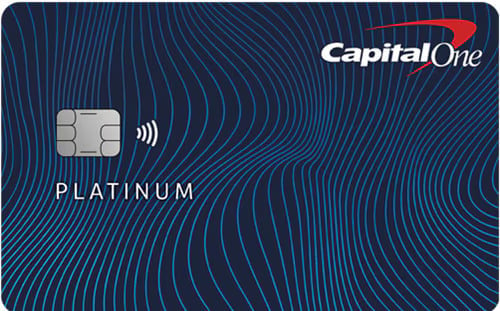If the Firstcard is actually your first credit card, you’ve set the bar pretty high. Compared with other secured credit cards, or cards that require a refundable deposit to open the account, the Firstcard is an excellent choice for its combination of perks, lack of major fees, and low barrier to entry.
People who have been denied credit from traditional issuers like Discover or Chase may be able to get the Firstcard, issued by Regent Bank, because there’s no credit check required.
Here’s what you need to know about the Firstcard Secured Credit Builder card.
1. Almost anyone could be eligible for it
The Firstcard is one of the most accessible credit cards we’ve seen, making it a great option for those who haven’t been able to get a line of credit. The only requirements: Firstcard applicants must be U.S. residents, at least 18 years old and have a government-issued ID. You don’t even need a Social Security number, but in lieu of that, Firstcard requires passport or visa information.
Your credit scores don’t matter either, as Firstcard doesn’t perform a hard credit check on applicants.
In order to use the Firstcard, you’ll need to transfer money into your Firstcard deposit account, which you can do via direct deposit, or transfer from a linked bank account or debit card. Unlike other secured cards, Firstcard doesn’t require a minimum deposit.
2. There aren’t many fees

The Firstcard touts itself as being fee-free, and that’s mostly true. The card doesn’t charge annual fees, late fees, overdraft fees or interest on unpaid balances. However, you’ll pay $8.99 just to have the Firstcard mailed to your house. (It’s $18.99 for expedited shipping.)
Firstcard also imposes a 1.5% foreign transaction fee and a $2.50 ATM withdrawal fee. You can avoid the foreign transaction fee if you opt for a paid membership with Firstcard, but that comes with its own fee. More on that later.
For credit newbies, the lack of late fees and any APR to speak of can help ease the transition into the world of credit. Be aware, though, that those training wheels come off if you graduate to an unsecured card — which isn’t really possible with the Firstcard unless you’re willing to pay (again, more on that later).
If you want a starter card that more closely mimics the experience of a “real” credit card, and that also has a potential upgrade path to multiple other products, consider the Capital One Platinum Secured Credit Card. Its annual fee and foreign transaction fees are both $0, but it charges up to $40 for a late payment, and unpaid balances will accrue interest.
3. Responsible card use could boost credit score
The target audience for the Firstcard is college students, a cohort with typically little to no credit history. Firstcard can help its cardholders build a credit profile and raise their scores because it reports to all three credit bureaus: Equifax, Experian and TransUnion. If you use the Firstcard responsibly by paying off balances in full and on time, the credit bureaus will log that good behavior in their files.
4. It earns rewards on most purchases
Firstcard holders get cash back on certain purchases. The card earns:
-
5% cash back on 12 educational platforms including ChatGPT, Grammarly and Headspace.
-
Up to 15% cash back at 29,000 partner merchants.
-
Up to 10% cash back on all qualifying purchases. This rate is stackable with other cash back earned. To access this bonus cash back, cardholders must spin the wheel in the Firstcard app, which will determine the bonus cash back rate for each eligible transaction.
Cash back is automatically redeemed as a statement credit to the cardholder’s account.
Firstcard caps the amount of rewards earned, though most people won’t need to worry about hitting them. Cash back earned per transaction is capped at $15, and the maximum cash back earned per day is $75.
5. Get more perks — for a price
Though there’s no traditional upgrade path from the Firstcard, there’s a way to get a better version of the card — but it’ll cost you. Firstcard holders can purchase a Firstcard+ membership, which costs $4.99 a month, or $48 a year. Firstcard+ benefits include:
-
An extra 1% cash back that stacks on top of the card’s base rewards rate.
-
Money in your Firstcard deposit account earns a 4.25% interest rate. Without Firstcard+, the interest rate drops to 1.25%.
-
No foreign transaction fee.
Note that Firstcard holders without a Social Security number or individual taxpayer identification number (ITIN) are ineligible to earn interest and thus can’t profit from the excellent interest rate offered by Firstcard+.

